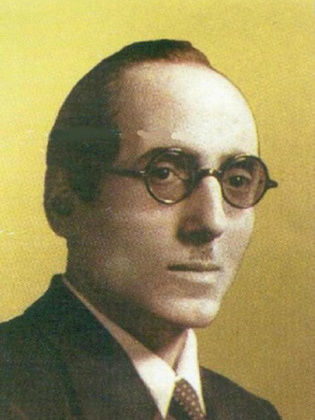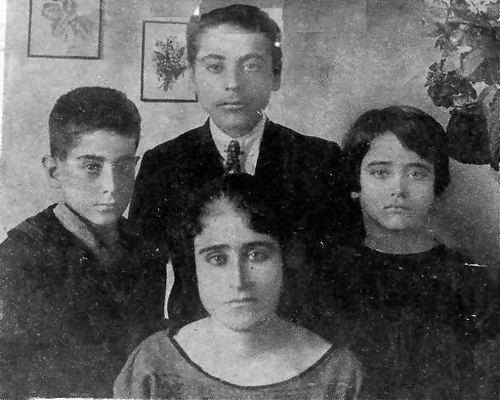|
Layla Bent Lukayz
Laila bint Lukaiz or Layla bint Lukayz ( ar, ┘ä┘Ä┘Ŗ┘Æ┘ä┘Ä┘ē ž©┘垬 ┘ä┘Å┘ā┘Ä┘Ŗ┘Æž▓ died 483), otherwise known as "Layla the Chaste" (Arabic: ┘ä┘Ŗ┘ä┘ē ž¦┘äž╣┘ü┘Ŗ┘üž®), was a legendary Arab poet and one of the leading poets of the fifth century.''Classical Poems by Arab Women: A Bilingual Anthology'', ed. and trans. by Abdullah al-Udhari (London: Saqi Books, 1999), pp. 26ŌĆō27. Life Laila bint Lukaiz b. Murra b. Asad was one of the women poets who lived before Islam. Leyla, who belonged to the tribe of Rabi'a ibn Nizar, was of Arab origin. It is recorded that Leyla was one of the Arab Christians that existed before Islam. She was the youngest child of her father, Lukeyz, and stood out among her peers for her virtue, beauty, intelligence and decency. It is reported that she had many aristocrat suitors, due to the fact that she gathered many positive traits in her person. She was promised in marriage to a Yemeni prince despite being in love with her cousin Barraq ibn Rawhan. While o ... [...More Info...] [...Related Items...] OR: [Wikipedia] [Google] [Baidu] |
Arabic Poetry
Arabic poetry ( ar, ž¦┘äž┤ž╣ž▒ ž¦┘äž╣ž▒ž©┘Ŗ ''ash-shiŌĆśru al-ŌĆśArab─½yyu'') is the earliest form of Arabic literature. Present knowledge of poetry in Arabic dates from the 6th century, but oral poetry is believed to predate that. Arabic poetry is categorized into two main types, rhymed or measured, and prose, with the former greatly preceding the latter. The rhymed poetry falls within fifteen different meters collected and explained by al-Farahidi in ''The Science of ŌĆś Arud''. Al-Akhfash, a student of al-Farahidi, later added one more meter to make them sixteen. The meters of the rhythmical poetry are known in Arabic as "seas" (''bußĖź┼½r''). The measuring unit of seas is known as "''tafŌĆś─½lah''," and every sea contains a certain number of taf'ilas which the poet has to observe in every verse (''bayt'') of the poem. The measuring procedure of a poem is very rigorous. Sometimes adding or removing a consonant or a vowel can shift the ''bayt'' from one meter to another. Also, in ... [...More Info...] [...Related Items...] OR: [Wikipedia] [Google] [Baidu] |
Islam
Islam (; ar, █śž¦┘ä┘Éžźž│┘ä┘Äž¦┘ģ, , ) is an Abrahamic religions, Abrahamic Monotheism#Islam, monotheistic religion centred primarily around the Quran, a religious text considered by Muslims to be the direct word of God in Islam, God (or ''Allah'') as it was revealed to Muhammad, the Muhammad in Islam, main and final Islamic prophet.Peters, F. E. 2009. "All─üh." In , edited by J. L. Esposito. Oxford: Oxford University Press. . (See alsoquick reference) "[T]he Muslims' understanding of All─üh is based...on the Qur╩┐─ün's public witness. All─üh is Unique, the Creator, Sovereign, and Judge of mankind. It is All─üh who directs the universe through his direct action on nature and who has guided human history through his prophets, Abraham, with whom he made his covenant, Moses/Moosa, Jesus/Eesa, and MußĖźammad, through all of whom he founded his chosen communities, the 'Peoples of the Book.'" It is the Major religious groups, world's second-largest religion behind Christianity, w ... [...More Info...] [...Related Items...] OR: [Wikipedia] [Google] [Baidu] |
Mohamed El Qasabgi
Mohamed el-Qasabgi ( ar, ┘ģžŁ┘ģž» ž¦┘ä┘鞥ž©ž¼┘Ŗ; pronounced in local Egyptian dialect as Mohamed el-Asabgi; 1892 ŌĆō 25 March 1966) was an Egyptian musician and composer, and is regarded as one of the five leading composers of Egypt in the 20th century. Most of his credits went to Umm Kulthum, Asmahan, and Layla Murad who sang most of his great works and scores. Until today, most critics classify Mohamed El Qasabgi as the master of the oud due to his great abilities and skills which he had during his time. In most of his tunes, there is a real sensation of the pure Oriental spirit, mixed with European musical techniques and taste. This was mostly seen in songs like Ya Toyour, Raa' El Habeeb, Ana Albi Daleeli. In the above mentioned songs and many others, he was widely recognized by most musicians and critics at that time as the leader of development of Oriental music, and mixing it with newest musical techniques and influences brought in from Western classical traditions o ... [...More Info...] [...Related Items...] OR: [Wikipedia] [Google] [Baidu] |
Asmahan
Amal al-Atrash ( ar, žó┘ģž¦┘ä ž¦┘䞯žĘž▒ž┤ ', North Levantine ; November 25, 1918 ŌĆō July 14, 1944),"┘ģ┘åž▓┘ä ž¦┘ä┘ü┘垦┘åž® žŻž│┘ģ┘枦┘å ž©ž¦ž¬ ┘ģž¬žŁ┘üž¦┘ŗ" , ''Al-Mada'' better known by her stage name Asmahan (, '), was a Syrian singer. Having immigrated to Egypt at the age of three years old, her family knew the composer , and she sang the compositions of Mohamed El Qasabgi and Zakariyya Ahmad. [...More Info...] [...Related Items...] OR: [Wikipedia] [Google] [Baidu] |
5th-century Arabs
The 5th century is the time period from 401 ( CDI) through 500 ( D) ''Anno Domini'' (AD) or Common Era (CE) in the Julian calendar. The 5th century is noted for being a period of migration and political instability throughout Eurasia. It saw the collapse of the Western Roman Empire, which came to an end in 476 AD. This empire had been ruled by a succession of weak emperors, with the real political might being increasingly concentrated among military leaders. Internal instability allowed a Visigoth army to reach and ransack Rome in 410. Some recovery took place during the following decades, but the Western Empire received another serious blow when a second foreign group, the Vandals, occupied Carthage, capital of an extremely important province in Africa. Attempts to retake the province were interrupted by the invasion of the Huns under Attila. After Attila's defeat, both Eastern and Western empires joined forces for a final assault on Vandal North Africa, but this campaign was ... [...More Info...] [...Related Items...] OR: [Wikipedia] [Google] [Baidu] |
Arabic-language Women Poets
Arabic (, ' ; , ' or ) is a Semitic language spoken primarily across the Arab world.Semitic languages: an international handbook / edited by Stefan Weninger; in collaboration with Geoffrey Khan, Michael P. Streck, Janet C. E.Watson; Walter de Gruyter GmbH & Co. KG, Berlin/Boston, 2011. Having emerged in the 1st century, it is named after the Arab people; the term "Arab" was initially used to describe those living in the Arabian Peninsula, as perceived by geographers from ancient Greece. Since the 7th century, Arabic has been characterized by diglossia, with an opposition between a standard prestige languageŌĆöi.e., Literary Arabic: Modern Standard Arabic (MSA) or Classical ArabicŌĆöand diverse vernacular varieties, which serve as mother tongues. Colloquial dialects vary significantly from MSA, impeding mutual intelligibility. MSA is only acquired through formal education and is not spoken natively. It is the language of literature, official documents, and formal written medi ... [...More Info...] [...Related Items...] OR: [Wikipedia] [Google] [Baidu] |
Arabic-language Poets
Arabic (, ' ; , ' or ) is a Semitic language spoken primarily across the Arab world.Semitic languages: an international handbook / edited by Stefan Weninger; in collaboration with Geoffrey Khan, Michael P. Streck, Janet C. E.Watson; Walter de Gruyter GmbH & Co. KG, Berlin/Boston, 2011. Having emerged in the 1st century, it is named after the Arab people; the term "Arab" was initially used to describe those living in the Arabian Peninsula, as perceived by geographers from ancient Greece. Since the 7th century, Arabic has been characterized by diglossia, with an opposition between a standard prestige languageŌĆöi.e., Literary Arabic: Modern Standard Arabic (MSA) or Classical ArabicŌĆöand diverse vernacular varieties, which serve as mother tongues. Colloquial dialects vary significantly from MSA, impeding mutual intelligibility. MSA is only acquired through formal education and is not spoken natively. It is the language of literature, official documents, and formal written medi ... [...More Info...] [...Related Items...] OR: [Wikipedia] [Google] [Baidu] |

.jpg)




